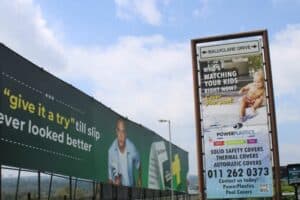SAPS spokesperson Brigadier Vishnu Naidoo says dealing in cannabis remained a serious criminal offence in terms of the Drugs and Drug Trafficking Act.

The South African Police Service (SAPS) on Monday issued a stern warning that dealing in dagga was still illegal, saying it would act against anyone selling or buying the plant.
SAPS spokesperson Brigadier Vishnu Naidoo said in a joint statement by the police and the South African Health Products Regulatory Authority (SAHPRA): “The establishment of illegal dispensaries/outlets, online sites and social media platforms which are marketing and selling cannabis and cannabis-related products to the public remains illegal, except where specifically allowed in terms of the Medicines and Related Substances Act.
“Some of these illegal businesses, purporting to be operating legally in terms of the Traditional Health Practitioners Act (No. 22 of 2007), are also being sold to members of the public as franchises authorised to deal in cannabis and cannabis-related products,” Naidoo said.
“In terms of the Traditional Health Practitioners Act, the definition of ‘traditional medicine’ means an object or substance used in traditional health practice for the diagnosis, treatment or prevention of a physical or mental illness or any curative or therapeutic purpose, including the maintenance or restoration of physical or mental health or well-being in human beings, but does not include a dependence-producing or dangerous substance or drug.
“As a result, the Traditional Health Practitioners Act does not create a mechanism to sell cannabis and cannabis-related products that are not exempted in terms of the Medicines Act.”
Naidoo reminded the public of the effect of the Constitutional Court judgment handed down on September 18 last year.
“The effect of the judgment is that only an adult person, 18 years and older, may use, possess or cultivate cannabis in private for his or her personal consumption in private. The use, including smoking, of cannabis in public or in the presence of children or in the presence of non-consenting adult persons is not allowed. The use or possession of cannabis in private other than by an adult for his or her personal consumption is also not permitted.”
Naidoo said dealing in cannabis remained a serious criminal offence in terms of the Drugs and Drug Trafficking Act.
“The definition of dealing is made very clear in the Drugs and Drug Trafficking Act, which currently reads (with the words ‘read in’ by the Constitutional Court): ‘in relation to a drug, includes performing any act in connection with the transhipment, importation, cultivation other than the cultivation of cannabis by an adult in a private place for his or her personal consumption in private, collection, manufacture, supply, prescription, administration, sale, transmission or exportation of the drug’.”
Cannabis, the whole plant or parts or products thereof, and tetrahydrocannabinol (THC), the psychoactive substance that gives one a “high”, are currently listed as Schedule 7 substances in terms of the Medicines and Related Substances Act, except when present in processed hemp fibre and products containing not more than 0.1 % of THC in a form not suitable for ingestion, smoking or inhaling purposes; or when present in processed products made from cannabis seed containing not more than 0.001 % of THC; or when used for medicinal purposes.
Cannabidiol (CBD) is listed as a Schedule 4 substance. Certain CBD-containing preparations have been excluded from the operation of the schedules by the minister of health for a time-limited period, as per an exclusion notice (R.756) published in Government Gazette No. 42477 on 23 May 2019, Naidoo said.
CBD-containing preparations for medicinal use are excluded when they contain a maximum daily dose of 20mg of CBD with an accepted low-risk claim or health claims, without referring to any specific disease.
CBD-containing processed products are also excluded when the naturally occurring quantity of CBD and THC contained in the product does not exceed 0.0075 % and 0.001 %, of CBD and THC respectively.
“Any CBD-containing products that are outside the parameters of the exclusion notice are subject to the provisions of the Schedules and registration as a medicine,” Naidoo warned.
“Any person who imports or manufactures a CBD-containing medicine in accordance with the exclusion notice must still be in possession of a licence issued in terms of section 22C(1)(b) of the Medicines Act and comply with any relevant standards, including current Good Manufacturing Practice (cGMP) standards. Such persons must be able to present verified assessment by an accredited laboratory of the CBD and/or THC content of any product or medicine when requested.”
Naidoo said the police were mandated to and would act, not only against businesses that sold cannabis illegally, but also against the customers who bought these products.
“Members of the public are encouraged to download the MySAPS app on any iPhone or Android [device] to have easy access to the police to, among others, provide tip-offs or one may to report any information relating to the sale of cannabis to the SAPS through the SAPS Crime Stop number 086 00 10111.”
Naidoo said callers may remain anonymous and all information would be treated in the strictest confidence.
For more news your way, download The Citizen’s app for iOS and Android.






